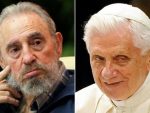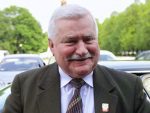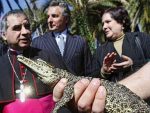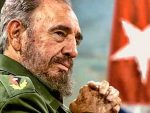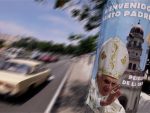
As Cuba prepared to receive Pope Benedict XVI on March 26, an increasing number of voices both on the island and abroad are complaining that the local church authorities are ignoring dissident groups and showing favoritism to a government that oppresses its own people. They also fear that the pontiff’s visit could be exploited for the same purposes.
In recent days, Lech Walesa, the former leader of Poland’s Solidarity movement that toppled the communist regime in 1989, as well as Cuban-American congresswoman Ileana Ros-Lehtinen, have joined Cuban dissident groups to ask the pope to speak out against human rights abuses by the island’s communist government during his upcoming trip.
The Cuban authorities have added fuel to the fire during the past week by temporarily arresting human rights protesters and other dissidents, including seventy members of the Ladies in White, which consists of the wives and female relatives of political prisoners. Thus far, requests by the Ladies in White to meet with Pope Benedict during his trip have not been answered.
Seeking to take advantage of the publicity surrounding the pope’s visit, a group calling itself the Republican Party of Cuba occupied several churches in the dioceses of Havana and Holguin on March 13. The group’s spokesman says that they were trying to “call the attention of the pope” to their cause, which they characterize as “liberty, democracy, and respect for human rights.”
Although the dioceses of Havana and Holguin deny that they asked for police intervention, the Havana protesters were ejected by government authorities by force two days later, after the archdiocese informed the police of the situation. The Republican party of Cuba complains that its members were handled roughly, and that the Bishop of Holguin behaved towards them in an insulting manner when asking them to leave, an order that was peacefully obeyed.
The Archdiocese of Havana accuses the dissidents themselves of attempting to use the pope’s visit for political purposes, claiming their actions are based “on a strategy prepared and coordinated by groups in various regions of the country.”
“It is not a chance event, but rather a planned one, apparently with the purpose of creating critical situations as the Pope’s visit approaches,” the archdiocese stated in a press release published by Granma, an organ of the government.
Read the article...